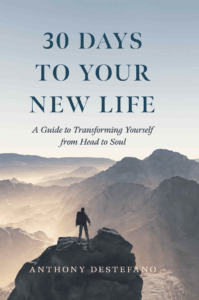Podcast: Play in new window | Download (Duration: 23:37 — 16.3MB) | Embed
Subscribe: Apple Podcasts | Spotify | Amazon Music | Android | Pandora | iHeartRadio | JioSaavn | Podchaser | Gaana | Podcast Index | Email | TuneIn | Deezer | Anghami | RSS | More
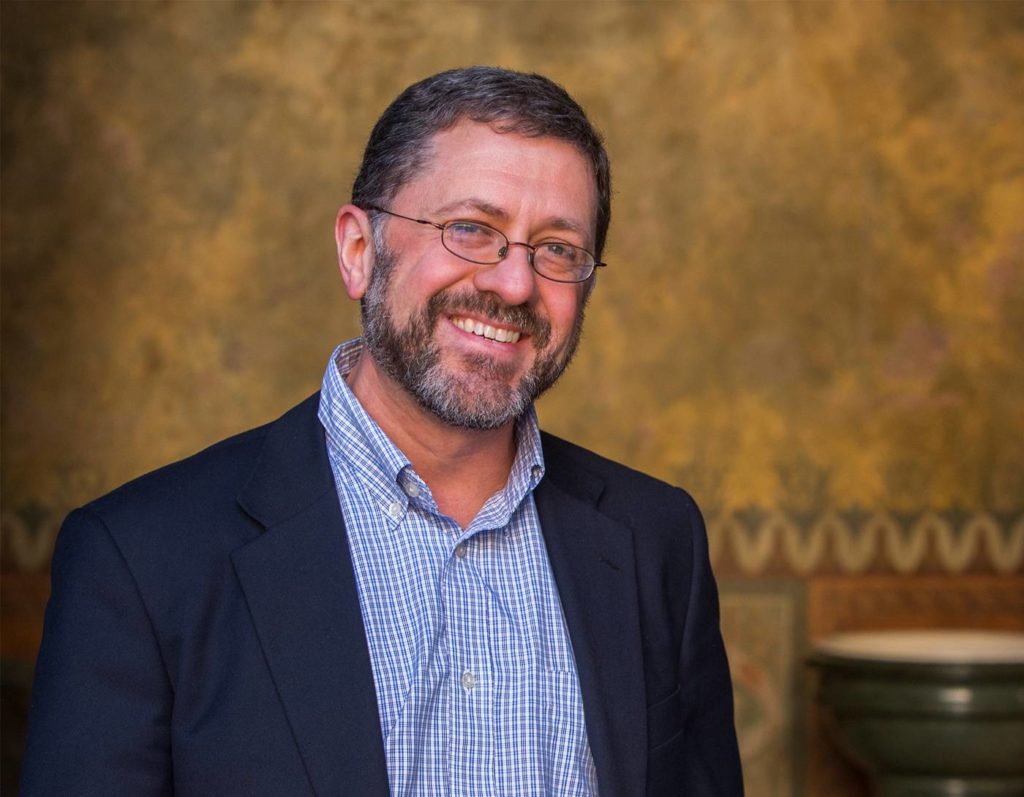 Episode 5 – Nero – Villains of the Early Church with Mike Aquilina
Episode 5 – Nero – Villains of the Early Church with Mike Aquilina
Mike Aquilina and Kris McGregor explore the life of Emperor Nero as one of the earliest and most notorious persecutors of Christians. In the book, Mike Aquilina describes Nero as a product of a corrupt dynasty rooted in assassination, manipulation, and unchecked power. Despite his violent and unstable behavior—including the murders of his wife and mother—Nero was adored by segments of the lower classes because he turned Rome into a kind of perpetual party, indulging the public and turning society upside-down. His vanity as a performer and obsession with applause fueled bizarre decisions, and his reputation as an embarrassment among Rome’s elite contrasted sharply with his popular appeal.
His persecution of Christians began after the Great Fire of Rome, which people suspected he caused to clear land for a grand palace. Lacking evidence to charge Christians with arson, he accused them of “hatred of humanity” for rejecting behaviors that Roman culture treated as normal. Nero executed them in shocking public spectacles, such as burning them alive as garden torches. Pagan historian Tacitus noted that these atrocities stirred sympathy rather than contempt, marking the beginning of conversions in Rome. This connects Nero to later tyrants throughout history and notes that figures like him recur as enemies of the faith, a theme echoed in the symbolism of the Book of Revelation.
Discerning Hearts Reflection Questions
- How do I respond when I encounter cultural pressure to accept moral standards that contradict the Gospel?
- What areas of my life reveal an attachment to comfort, entertainment, or popularity over fidelity to Christ?
- When facing injustice or persecution, how can I imitate the patience and courage shown by early martyrs like Peter and Paul?
- Do I pray for those who hold power, even when they misuse it or act in ways harmful to the Church?
- In what ways can I deepen my study of history so I can recognize patterns of spiritual danger in my own time?
- How does the witness of Christian martyrs challenge my understanding of sacrifice and love for God?
- What worldly influences tempt me to compromise my conscience, and how can I strengthen myself against them through prayer and sacrament?
An excerpt from Villains of the Early Church
“Pilate was a waffling dupe. Judas was a tortured soul who didn’t have the courage to repent. But perhaps no villain in Christian legend comes out as completely and utterly villainous as Nero. He isn’t just a sinner who made the wrong choice: in much of Christian legend, and even theology, he is literally the Antichrist.”
Aquilina, Mike. Villains of the Early Church: And How They Made Us Better Christians. Emmaus Road Publishing. Kindle Edition.
You can find the book on which this series is based here.
For more episodes in the Villians of the Early Church podcast visit here – Villains of the Early Church – Discerning Hearts Podcast
Mike Aquilina is a popular author working in the area of Church history, especially patristics, the study of the early Church Fathers.[1] He is the executive vice-president and trustee of the St. Paul Center for Biblical Theology, a Roman Catholic research center based in Steubenville, Ohio. He is a contributing editor of Angelus (magazine) and general editor of the Reclaiming Catholic History Series from Ave Maria Press. He is the author or editor of more than fifty books, including The Fathers of the Church (2006); The Mass of the Early Christians (2007); Living the Mysteries (2003); and What Catholics Believe(1999). He has hosted eleven television series on the Eternal Word Television Network and is a frequent guest commentator on Catholic radio.

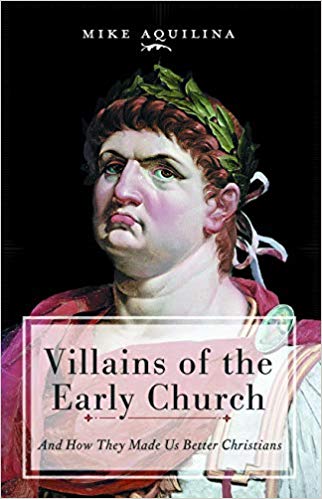
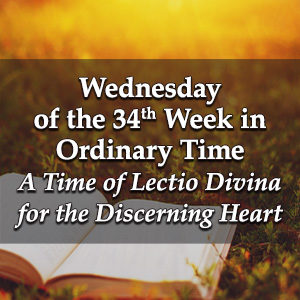 Wednesday of the Thirty-Fourth Week in Ordinary Time – A Time of Lectio Divina for the Discerning Heart Podcast
Wednesday of the Thirty-Fourth Week in Ordinary Time – A Time of Lectio Divina for the Discerning Heart Podcast
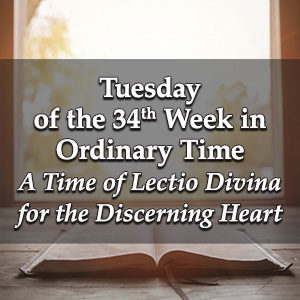 Tuesday of the Thirty-Fourth Week in Ordinary Time – A Time of Lectio Divina for the Discerning Heart Podcast
Tuesday of the Thirty-Fourth Week in Ordinary Time – A Time of Lectio Divina for the Discerning Heart Podcast Listening for God’s Voice – “What am I to do?” The Discernment of God’s Will in Everyday Decisions with Fr. Timothy Gallagher
Listening for God’s Voice – “What am I to do?” The Discernment of God’s Will in Everyday Decisions with Fr. Timothy Gallagher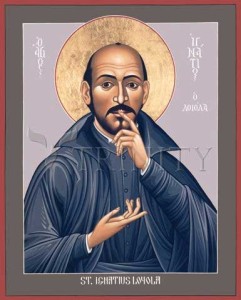 Discerning Hearts Reflection Questions:
Discerning Hearts Reflection Questions: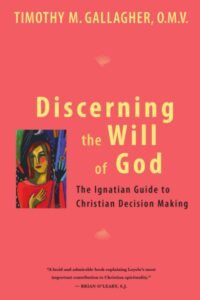
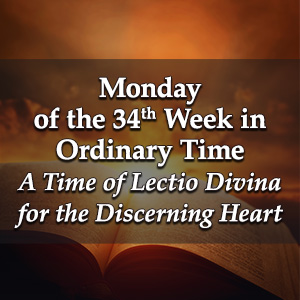 Monday of the Thirty-Fourth Week in Ordinary Time – A Time of Lectio Divina for the Discerning Heart Podcast
Monday of the Thirty-Fourth Week in Ordinary Time – A Time of Lectio Divina for the Discerning Heart Podcast
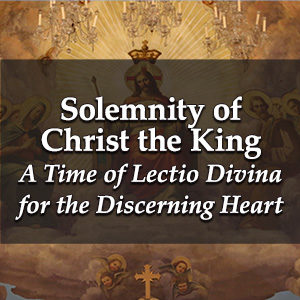 Solemnity of Christ the King – A Time of Lectio Divina for the Discerning Heart Podcast
Solemnity of Christ the King – A Time of Lectio Divina for the Discerning Heart Podcast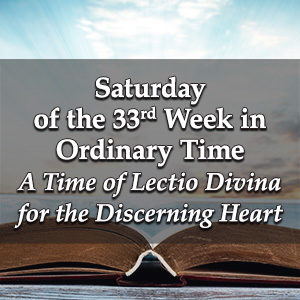 Saturday of the Thirty-Third Week in Ordinary Time – A Time of Lectio Divina for the Discerning Heart Podcast
Saturday of the Thirty-Third Week in Ordinary Time – A Time of Lectio Divina for the Discerning Heart Podcast
